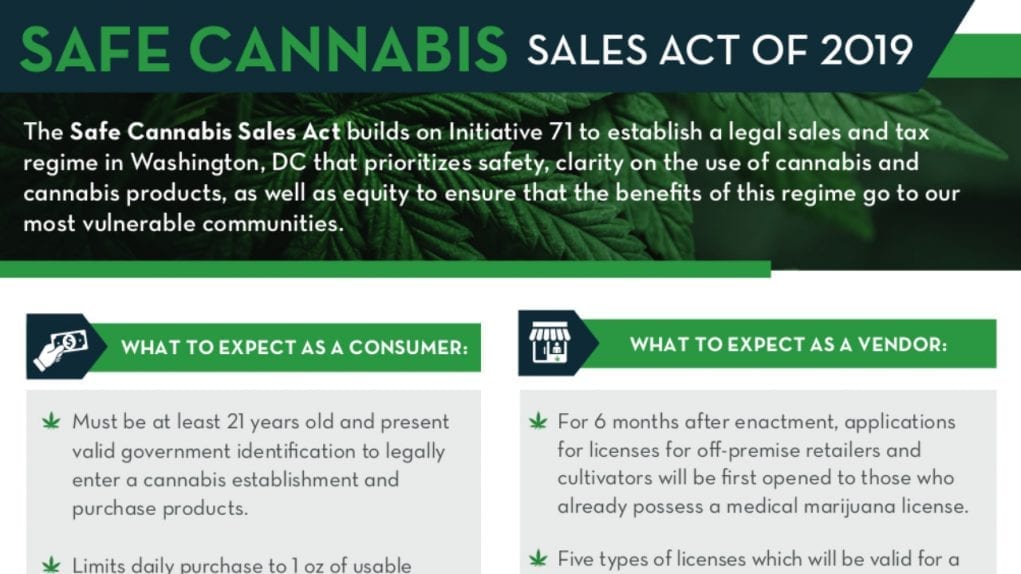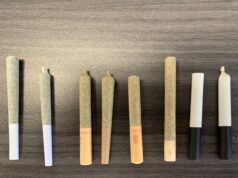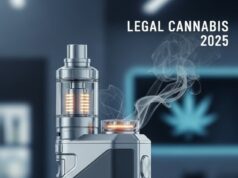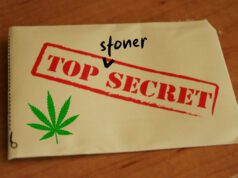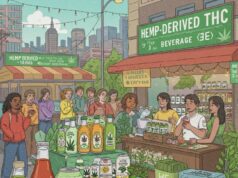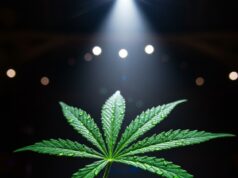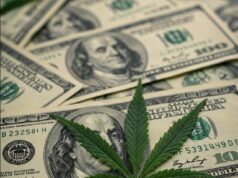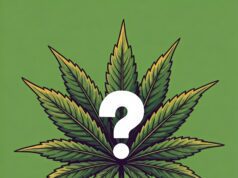While the ebb and flow of state-by-state cannabis legalization continue to inch towards progress, one district of the US is forever floundering in a legal twilight zone when it comes to cannabis. The US capitol, Washington D.C., is still struggling to find a template for legalizing cannabis.
Safe Cannabis Sales Act of 2019 – denied!
December of 2019 saw the most recent setback to legalization in Washington, D.C. The House of Representatives barred the District from the use of tax dollars to regulate legal cannabis sales. The provision was originally allowed as of June 2019, as part of the regular Federal spending bill package. But at the last minute, the House had to remove the attachment in order to not jeopardize the spending bill when passing it to the Senate.
The Senate did pass the spending bill, thereby guaranteeing the operation of the federal government through the Fiscal year 2020. This was necessary in order to avoid a government shutdown, a frequent plague of Federal governance in recent years. But the casualty of this process is that Washington D.C.’s permission to regulate cannabis sales was once more left on the House floor.

The complicated history of cannabis law in D.C.

The first pass at legalizing in D.C. was Initiative 59 in 1998, a voter-approved ballot initiative to approve medical cannabis which passed with a 69% vote in favor. But the initiative was stalled by Georgia Congressman Bob Barr, which prohibited D.C. from using its funds to support the program. This block was removed in 2009, clearing the way for medical sales with a bill passed in 2010.
Then in 2014, the District council approved a measure to decriminalize cannabis possession and use. This paved the way for Initiative 71, legalizing the possession of small amounts of cannabis in 2015. However, once again, the sale of cannabis was blocked from the Initiative, this time by Maryland Representative Andy Harris.
There’s still one hole in this legal situation: You can’t legally sell cannabis in the District. You can own it, grow it, transport it, and even give away up to one ounce of cannabis – just don’t trade it for cash.
Currently, Initiative 71 dictates how cannabis may be obtained in Washington DC. There, you are legally allowed to:
- Grow up to 6 plants
- Possess up to 2 ounces in public
- Share up to one ounce with another adult (over age 21)
But it is still illegal in DC to:
- Sell it
- Smoke it in public (infraction if caught)
- Possess it while standing on federal property (about 30% of DC)
The current situation forces the D.C. cannabis market into a “gift economy,” where loopholes allow one to give away cannabis as a “gift” – provided you first buy something legal to sell, like a Tshirt or sticker, with an inflated price to cover the cost of the cannabis.
Of course, with such a gray market status, fake and unregulated cannabis products run rampant.
The timeline of cannabis legislation in Washington D.C. looks something like this:
- 1906: Cannabis drugs require a prescription
- 1998: Initiative 59 passed allowing medical cannabis, but was blocked by Barr Amendment
- 2009: The Barr Amendment was overturned
- 2013: First legal sale of medical marijuana in Washington D.C.
- 2014: Cannabis decriminalized by city council vote
- 2014 again: Residents vote to approve recreational cannabis – Initiative 71
- 2015: Congressional review period on Initiative 71 expires, letting it become official policy.
While Initiative 71 was on the table, Congress fought hard to suppress it, going so far as to threaten Bowser, the mayor of Washington D.C., with arrest if she acted on Initiative 71, approved by her voters by a 64% margin. And you thought your job was complicated.
Why is Washington D.C. such a mess?
The unique political position of the nation’s capital makes it harder than normal to efficiently regulate cannabis. Unlike other areas that have legalized to varying degrees, Washington D.C. is not a state. The mayor of D.C., Muriel Bowser, is heard voicing her frustration at this state of affairs in the interview with FOX News reporting on the story in December of 2019. She talks about why we need to make Washington D.C. a state.
There’s just one problem with that plan: Washington D.C. is specifically prohibited from becoming a state in the body of the US Constitution itself, Article 1, Section 8, Clause 17 (second from the bottom). Congress is given exclusive jurisdiction over the District. The reasoning for this goes back to US founding father James Madison, in Federalist #43.
In a nutshell, it was feared that making Washington D.C. a state would give it lopsided power compared to the other states. Being in the jurisdiction of a state might taint voting on Capitol Hill, and the presence of the Federal seat of government might give the hypothetical state of D.C. overwhelming influence in legislation since it has more access to the Capitol than any other state. Intricate mechanisms of government like these give everybody headaches when it comes time to make legislative decisions.
The struggle continues…
Protests, petitions, demonstrations, and activism of all kinds continue at a vigorous pace in the District to this day. Hashtag #SafeCannabisDC on Twitter and Facebook. And then there’s this majestic demonstration:

OK, time out while we appreciate this moment in history when protesters carried a giant inflatable joint in front of the US Capitol. That’s very cool. And remember, Initiative 71 passed with 70% approval, a landslide vote by any standard. When it comes to the citizens of the District, support for full legalization is overwhelming.
But ultimately, the SNAFU of legalizing in the District has one easy answer: Legalizing at the Federal level. Once Federal prohibitions are dropped, all sorts of legal blockades to efficient cannabis regulation fall away, including in D.C., which has to be subject to Federal rule as a practical matter. Legalizing for D.C. without removing all Federal prohibition of cannabis, in general, would be a bit awkward, and in fact, the system was designed this way on purpose.
D.C.’s status as a Federal district without statehood is written into the Constitution; cannabis prohibition is not. Now which one’s easier to change?
Does anybody have ideas on how to fix this?
We’re all ears, with the understanding that James Madison probably meant well. Join us for the discussion here or in our forum.


